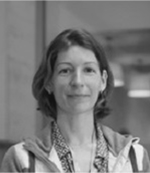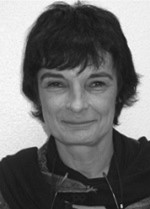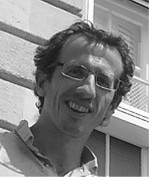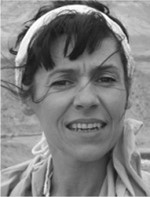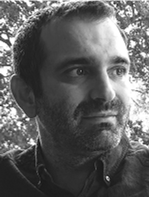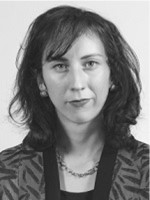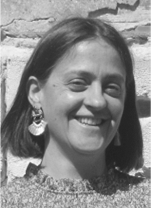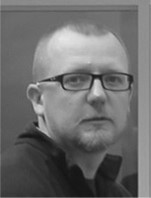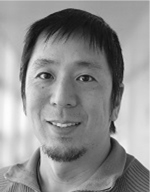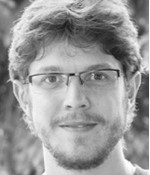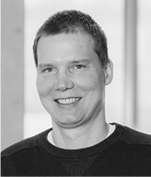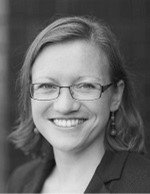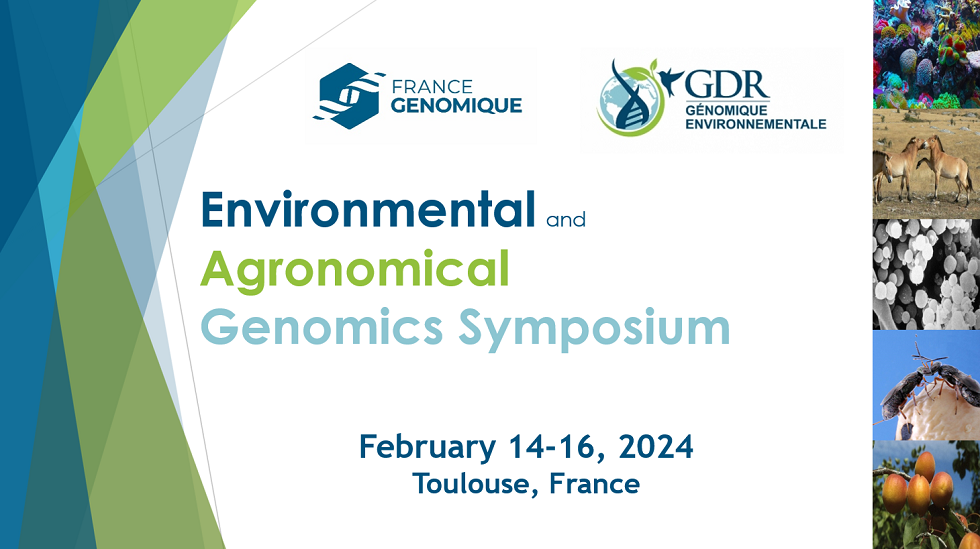
|
|
|
Invited speakersAmélie Baud, "Hologenome 2.0: taking the genomes of social partners into account", Centre for Genomic Regulation, Barcelona, Spain
Amélie Baud is the head of the ‘Social and host-microbiome systems’ team at CRG. The team is interested in the following research question: How do social partners and the gut microbiome influence health and disease? To address this question, the team leverages the fact that many characteristics of social partners and the gut microbiome can be predicted from the genes of social partners and the genes of the gut microbiome, respectively. Thus, instead of trying to measure all the traits of social partners and/or the microbiome that might influence a phenotype of interest, they simply sequence the genes of social partners and/or the genes of the microbiome and model the effect of those genes on the phenotype of interest, measured in focal individuals. The laboratory primarily uses laboratory rodents as models.
Anne-Marie Chèvre, "From the diversity of the diploid progenitors to a new diversity in a polyploid crop, oilseed rape", IGEPP, INRAe, Rennes, France
Anne-Marie Chèvre is belonging to the team Biodiversity, Evolution and Genomic of Biotic Interactions at INRAe. Her research is mainly focused on Brassiceae species with complementary studies on polyploidy and regulation of homologous and homoeologous recombination in Brassica. This knowledge is useful to insert genes of interest from related species into crops, and to assess gene flow from the crop to the weeds.
Sébastien Déjean, "Statistical methods for the exploration and the integration of multi-omics datasets", IMT, Toulouse, France
Sébastien Déjean is a research engineer in statistics. He is frequently involved in interdisciplinary research projects combining mathematics and life sciences. His expertise includes data analysis, biostatistics and statistical data integration.
Isabelle Domaizon, "Applications of environmental DNA & RNA in freshwaters ecosystems: recent advances, expectations for operational biomonitoring, challenges and prospects", CARRTEL, INRAe, Savoie-Mont-Blanc University, Thonon-les-bains, France
Isabelle Domaizon is team leader of the research unit CARRTEL: ‘Alpine Center for research on trophic networks and limnic ecosystems’. CARRTEL contributes to the understanding of how human and climate change affect essential resources and fundamental ecological functions within aquatic systems and their watersheds, and how this affects ecosystem services such as food, drinking water, biodiversity, maintenance of aquatic fauna and flora, water flow regulation, transfer and sequestration of nutrients or pollutants.
Antonio Fernandez Guerra, "Microbial time travellers: preserving the past, shaping the future", Globe Institute, University of Copenhagen, Denmark
Antonio Fernandez Guerra is Assistant Professor and Bioinformatician in the GeoGenetics department at the University of Copenhagen, Denmark. He is interested in development and application of new methodologies to analyze modern and ancient (meta)genomic data.
Camille Marchet, CNRS, Lille, France
Camille Marchet is a bioinformatics researcher. Her work is in sequence bioinformatics. She designs algorithms, methods and software to process biological data of DNA and RNA sequences. She joined the Lille Computer Science, Signal and Automation Research Center (CRIStAL - CNRS/Université de Lille/Centrale Lille) in 2020 as a CNRS research fellow.
Isabelle Ourliac-Garnier, "FungiSol : A citizen science project to investigate environmental yeasts in urban soil", Nantes University, France
Isabelle Ourliac-Garnier is associate professor of Analytical Chemistry at the Nantes University (UFR des Sciences Pharmaceutiques et Biomédicales), and carries out her research in UR 1155-IICiMed. The team's research focuses on antifungal resistance and on the discovery of new therapeutic targets. Since 2010, Isabelle has been studying antifungal resistance mechanisms, in particular related to ergosterol biosynthesis and PKC protein. She has recently set up a research project on soil fungal biodiversity in relation to yeast, based on a participatory science approach with school children (FungiSol project).
Julie Reveillaud, INRAe, MIVEGEC (EVCO team, PEEC department), Montpellier, France
Julie Reveillaud is an INRAe research scientist. She is broadly interested in how animals, resident bacteria and viral pathogens interact between each other. Currently, the team investigates the diversity, function, and evolutionary dynamics of microbial communities in disease vectors such as Culex mosquitoes. The team uses wet lab and in silico approaches including genetics, 16S amplicon sequencing, metagenomics and advanced binning together with metatranscriptomics to better understand intimate host-microbes associations and potentially develop novel vector biocontrol strategies.
François Sabot, "Ten years of pangenomics in rices, lessons and knowledge", IRD, Montpellier, France
François Sabot is a researcher at the French National institute for Sustainable Development (IRD) in the DIADE/Dynadiv team. His current research interest is the Pangenomics modification during speciation/domestication, especially regarding Transposable Elements, in various genomes. In this regard, He explores with his team the pangenome in all aspects: creation, modification, graph theory, vizualisation etc. In parallel, he spent (and continue to) large efforts on open science, through open source development, open access publication and open data dissemination, as the deputy director of the Open Science mission at IRD.
Shinichi Sunagawa, "The Ocean and Coral Reefs as Microbial Treasure Troves", ETH Zürich, Switzerland
Shinichi Sunagawa is an associate professor on microbiome research in the Department of Biology at ETH Zürich since 2016. His team is interested in studying ecological and evolutionary factors that determine the structure, function and diversity of microbial communities. Its current focus is on the ocean ecosystem and the gastrointestinal tract of animals and humans. The team develops and combine bioinformatic and experimental approaches to integrate quantitative ‘meta-omics’ readouts with contextual information, with the goal to better understand and predict the role of environmental microorganisms and the underlying mechanisms of host-microbial homeostasis.
Sébastien Terrat, INRAe Dijon, France
Sébastien Terrat is Associate Professor (IUT of Dijon Auxerre, department of Biological Engineering) and a researcher at INRAe (UMR 1347 Agroecology, BIOmE team). He does research in Molecular Biology, Biotechnology and Bioinformatics. His main interests lie in microbial spatial distribution in soils and links between diversity and function of soil microorganisms. His current project is 'MetaTAXOMIC-RMQS' and 'MetaOMIC-RMQS'.
Christian Voolstra, "A global view of the biocomplexity underlying coral holobiont diversity and climate change resilience", University of Konstanz, Germany
Christian Voolstra is the head of the ‘Genetics of Adaptation in Aquatic Systems’ team at the University of Konstanz and a Scientific Coordinator of the Tara Pacific Expedition. The research interest of his group builds around the concept of 'metaorganisms' or 'holobionts' and how microbial associates support host physiology and adaptation to a changing environment. In particular, his group studies coral holobionts, the keystone species of the critically threatened reef ecosystems.
Cornelia Welte, "Climate change microbiology: novel insights into methane cycling archaea", Radboud University, Nijmegen, The Netherlands
Cornelia Welte is Associate Professor in microbiology at Radboud University. Her main interest is curiosity driven research into the physiology, biochemistry and ecology of anaerobic bacteria and archaea with a keen eye on their application. She is currently focusing on methanogenic and methanotrophic archaea from various environments (2008-today) and toxin-degrading microorganisms associated to pest insects and water treatment plants (2013-today).
|
